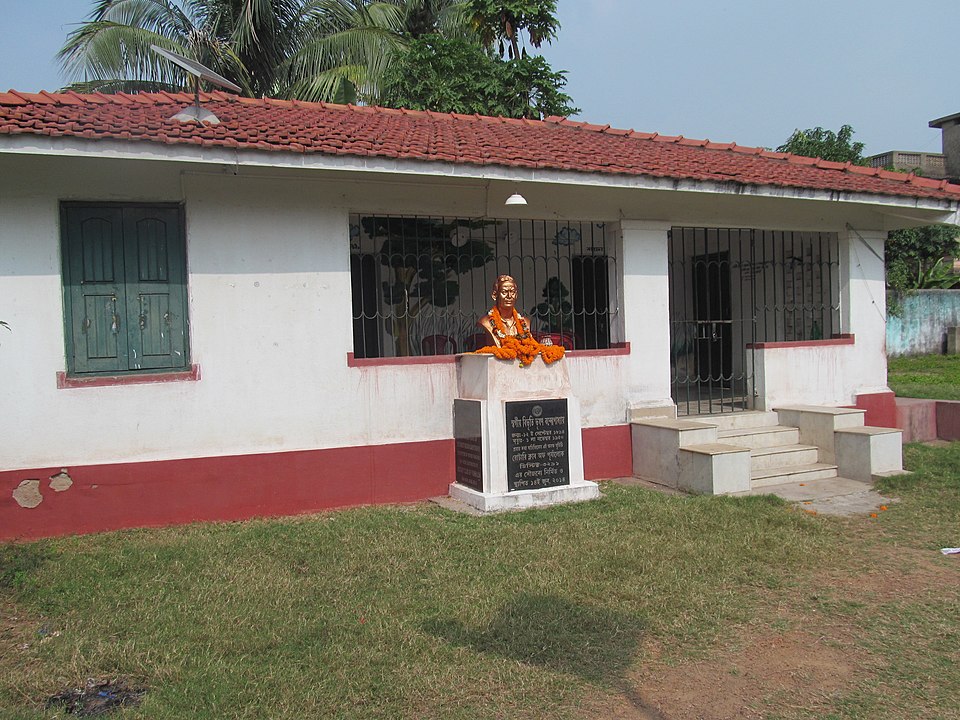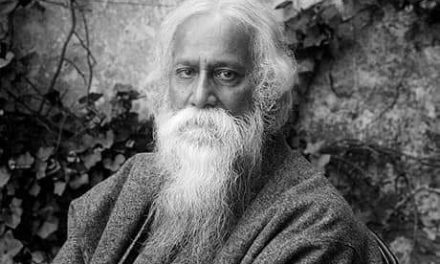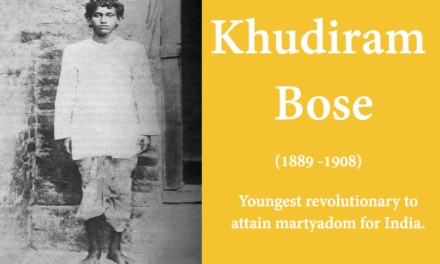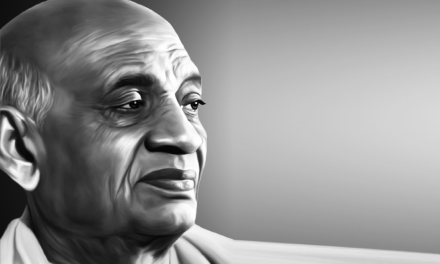A literary genius in the Bengali literary sky, Bibhutibhushan Bandyopadhyay was one of the most renowned novelists and writers of the post-Tagore era. He was born to Mahananda and Mrinalini Bandyopadhyay in Muratipur village, near Kalyani in Nadia, at his maternal uncle’s house in a Hindu Brahmin family.
The Bandyopadhyay family originally was from Panitar village, near Basirhat, located in the North 24 Parganas district; Bibhutibhushan’s great-grandfather, an Ayurvedic physician, shifted to Barrackpur village, near Gopalnagar, Banagram(now Bangaon) in the same neighbourhood. Bibhutibhushan had his childhood days at Barrackpur in West Bengal. His father, Mahananda Bandyopadhyay, was a priest, well-versed in Sanskrit and had been ornamented with the epithet of ‘Shastri’ due to the reasoning of his scholarship and efficiency in reciting and story-telling the legends and myths, but sadly, he passed away when Bibhutibhushan was very young.
Bibhutibhushan also established his professionalism in composing, but from childhood, he lived in poverty due to his father’s untimely demise. As the eldest descendant of five, he had to take all his family responsibilities on his shoulders. He took on the struggle as his companion and started his wend to education. Bibhutibhushan Bandyopadhyay was a gifted student who took his first admission at Bangaon High School, listed as the oldest institution in British India. After completing his Entrance and Intermediate Arts examinations and earning the first division in both, Bibhutibhushan did his undergraduate degree in Economics, History and Sanskrit at the Surendranath College'(the then ‘Ripon College’) in Calcutta(now Kolkata). He was admitted to Master’s degree(MA) and Law classes but was forced to drop out due to his economic situation.
Life did not leave any other options except earning in front of Bibhutibhushan, where he was eager to continue his subsequent academic career. To keep up his domestic life, he had to do various jobs. Subsequently, he served as a travelling publicist for Goraksini Sabha; he joined as a secretary for Khelatchandra Ghosh(a popular figure in music and charity). That is to say, Bibhutibhushan had to play a role in managing his(Khelatchandra) Bhagalpur estate and also tutored Khelatchandra’s family. Outstandingly Bibhutibhushan joined the Khelatchandra Memorial School as a teacher. But eventually, he returned to his native place and played the role of a teacher in the ‘Gopalnagar Haripada Institution’ along with his literary works.
Bibhutibhushan Bandyopadhyay lost his first wife, Gouri Devi, just one year after their marriage. This tragic incident and the loneliness had an immense impact on his personal life and his early writings. At the age of 46 years, he remarried his second wife, Rama Chattopadhyay. She gave birth to their only son, Taradas, in 1947.
Literary Contributions
Bibhutibhushan had a keen interest in jungles. When he was in the state of Bihar, he roamed miles into the several woods located at Manbhum, Chhotanagpur, Singbhum, and Bhagalpur districts with his notebook in which he wrote down his moods arose into his mind. These experiences with the peaceful environment of wilderness helped him ornament his creations. On the other hand, as he grew up with his economic imbalance and his struggle, all this was reflected in his writings with a shape of simple life, human figures and the environmental pleasure of rural Bengal widely of the people of Bengal.
As Bibhutibhushan himself was a representative of the humble people, he sketched all of his writings in a simple language and in a way that touched ordinary people. Realism became the basic idea in his writings, which got its credibility to the readers. Bibhutibhushan was the only novelist and writer of the post-Tagore era who corresponded to the people to nature, animals, birds, rivers, and other aspects of life.

Bibhutibhushan Bandyopadhyay, the veteran novelist and writer, started his wend professionalism when his short story, ‘Upekshita’, was published in “Prabasi” magazine in 1922. ‘Pather Panchali’, a novel which is considered the masterpiece in Bengali literature by Bibhutibhushan Bandyopadhyay. It initially appeared as a serial in a Calcutta periodical in 1928. It was published as a book in the next year(1929). This glorious creation illustrates the life of the Roy family, headed by Horihar Roy of the village, Nischindipur; his better half, Sharbojaya; their six-year-old daughter, Durga and the son, Apu. ‘Pather Panchali’ deals with both in Roy family’s ancestral village in rural Bengal and later when they move to Varanasi in search of a better life and the agony and loss from this journey. This mass promulgated novel has been translated into several Indian and European languages and became a milestone in the world film industry when famous Satyajit Ray made a film with the title, ‘Apu Trilogy’ based on it. The first was ‘Pather Panchali’, released in 1955; the second was ‘Aparajito’, released in 1956; and the final was ‘The World of Apu’, released in 1959.
Some other important writings which have enriched the Bengali literature are ‘Meghamallar'(1931), ‘Mauriphul'(1932), ‘Aparajita'(1931), ‘Yatrabadal'(1934), Chandra Pahad'(1937), ‘Kinnardal'(1938), ‘Aranyak'(1939), ‘Adarsha Hindu Hotel'(1940), ‘Moraner Dankabaje'(1940), ‘Smritir Rekha'(1941), ‘Devayan'(1944), ‘Hiramanik Jwale'(1946), ‘Utkarna'(1946), ‘He Aranya Katha Kao'(1948), ‘Ichhamati'(1950), ‘Ashani Sanket'(1959) etc. He was posthumously awarded the ‘Rabindra Puraskar’ in 1951 for his novel, “Ichhamati”. ‘Taranath Tantrik’ is a fictional character of Bengali literature created by Bengali legendary novelist Bibhutibhushan Bandyopadhyay, and the series was extended later by his son, Taradas Bandyopadhyay.
Bibhutibhushan Bandyopadhyay went to heavenly abode on the 1st of November, 1950, after suffering a coronary attack at 56 years in Ghatshila.
















